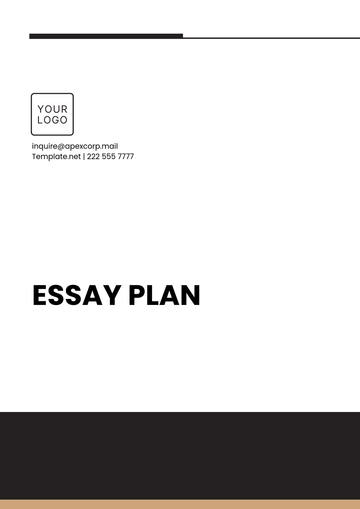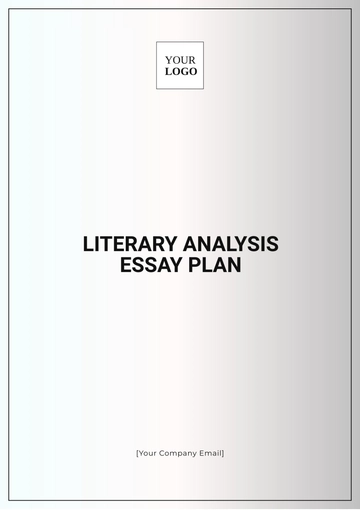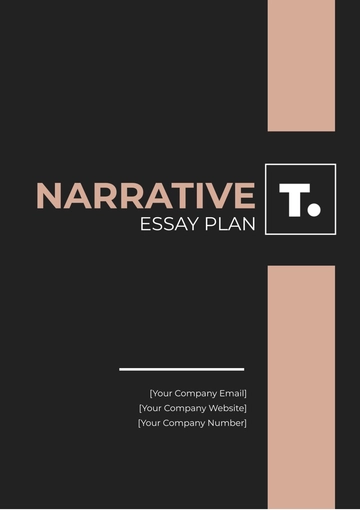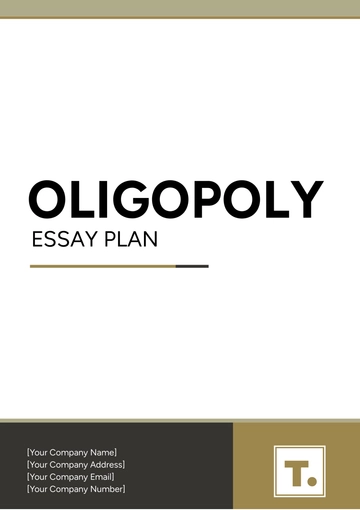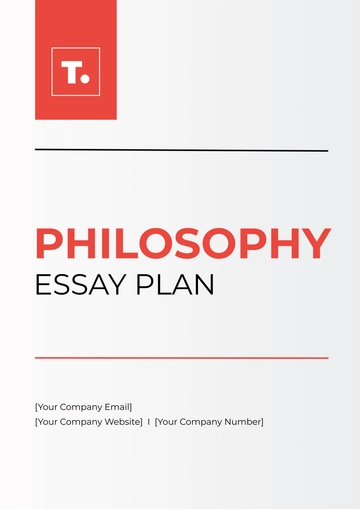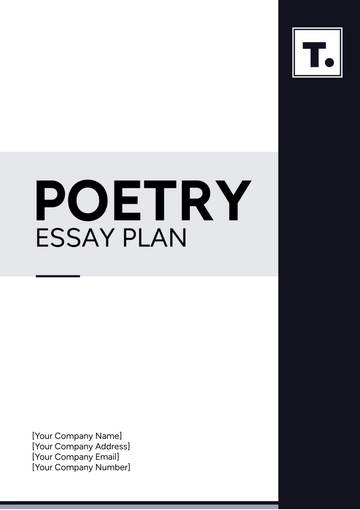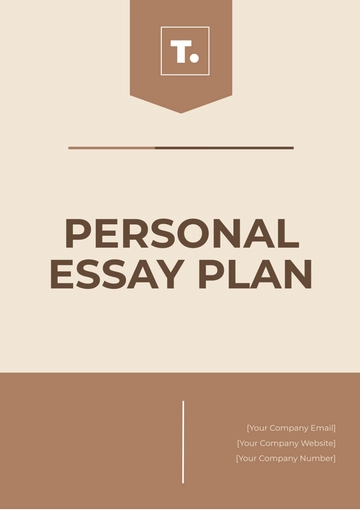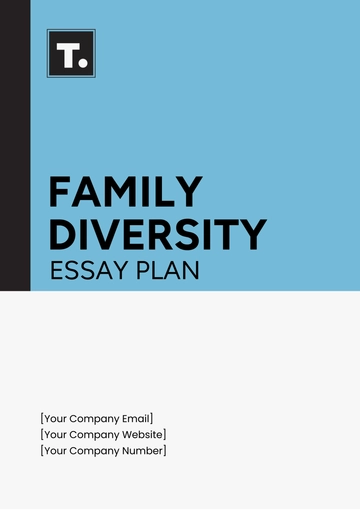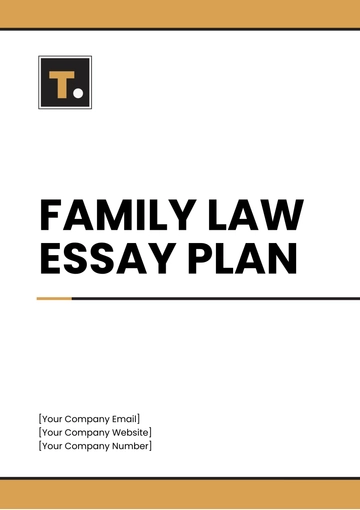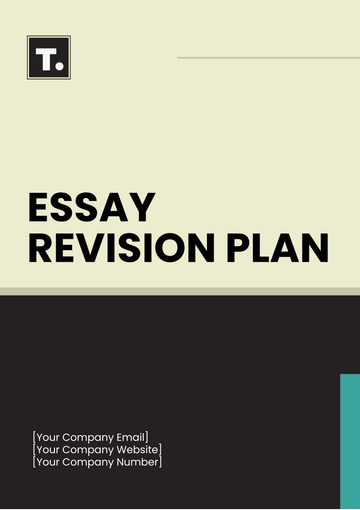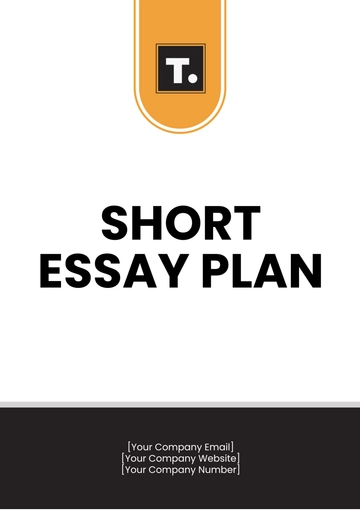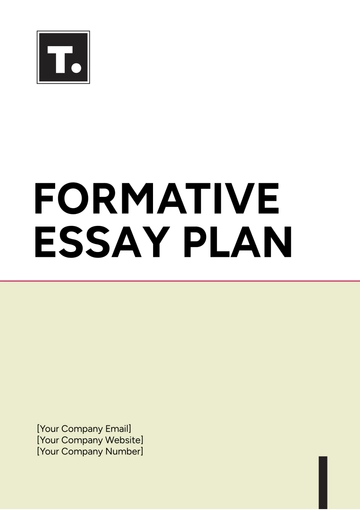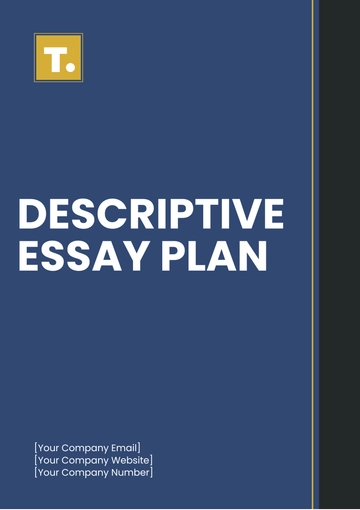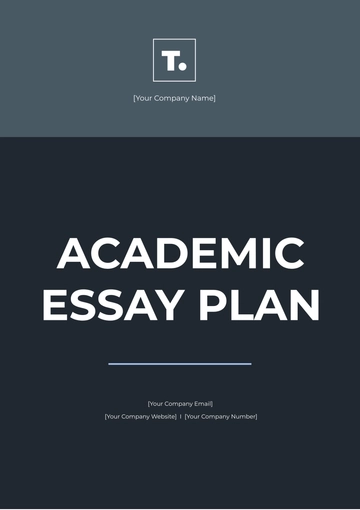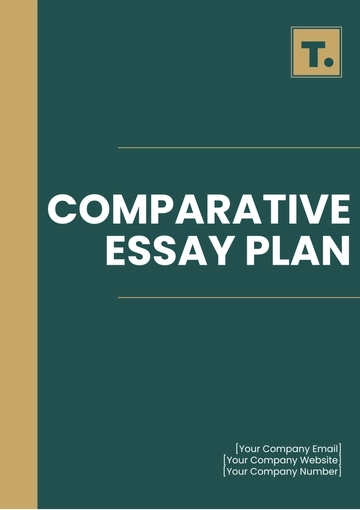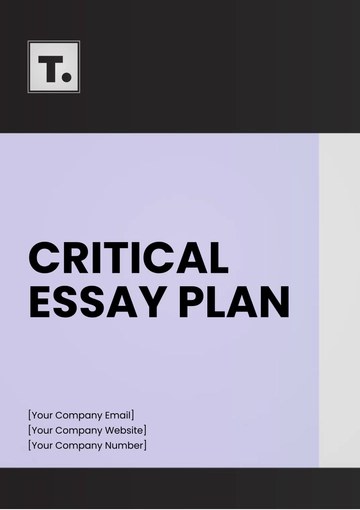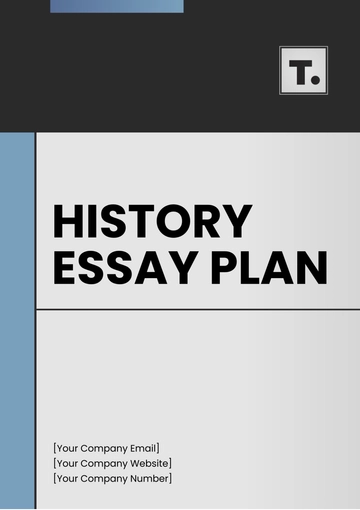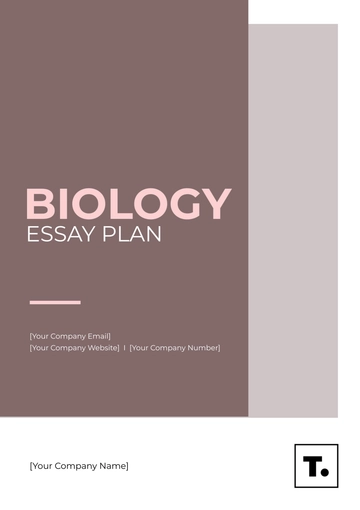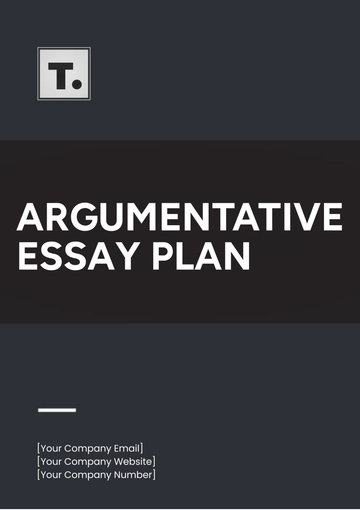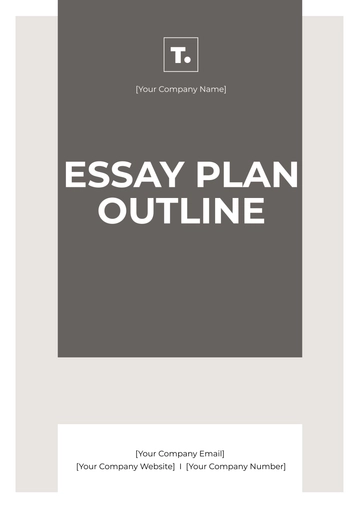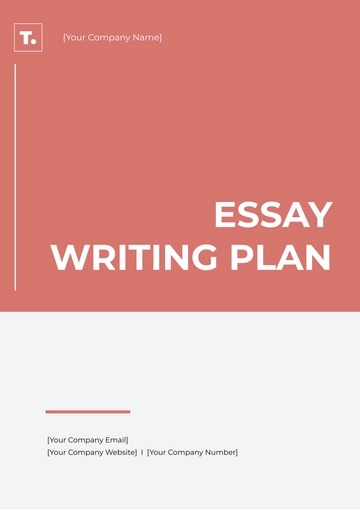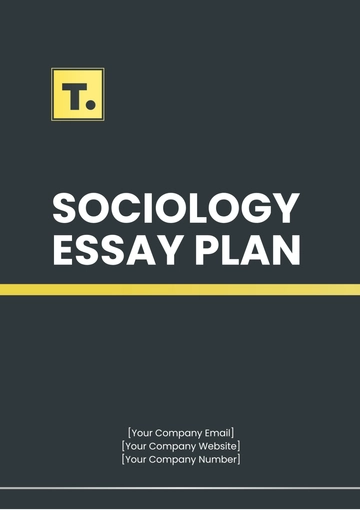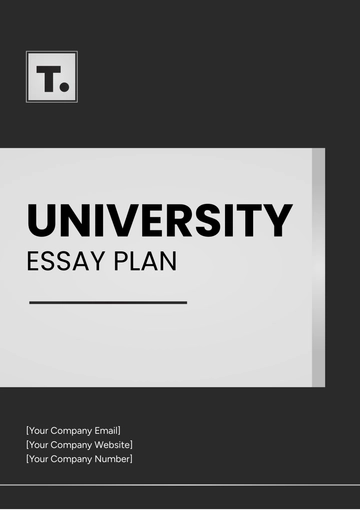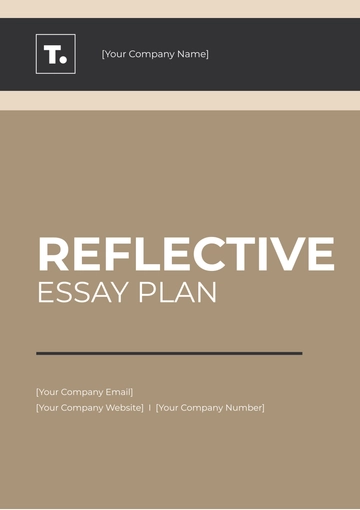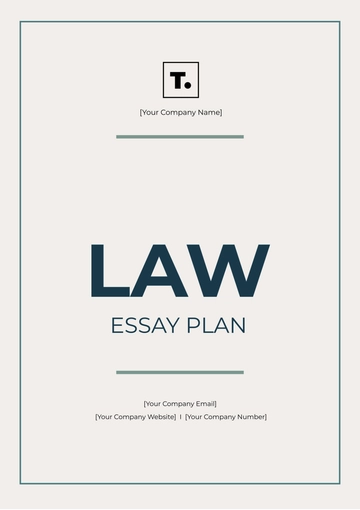Free Personal Essay Plan
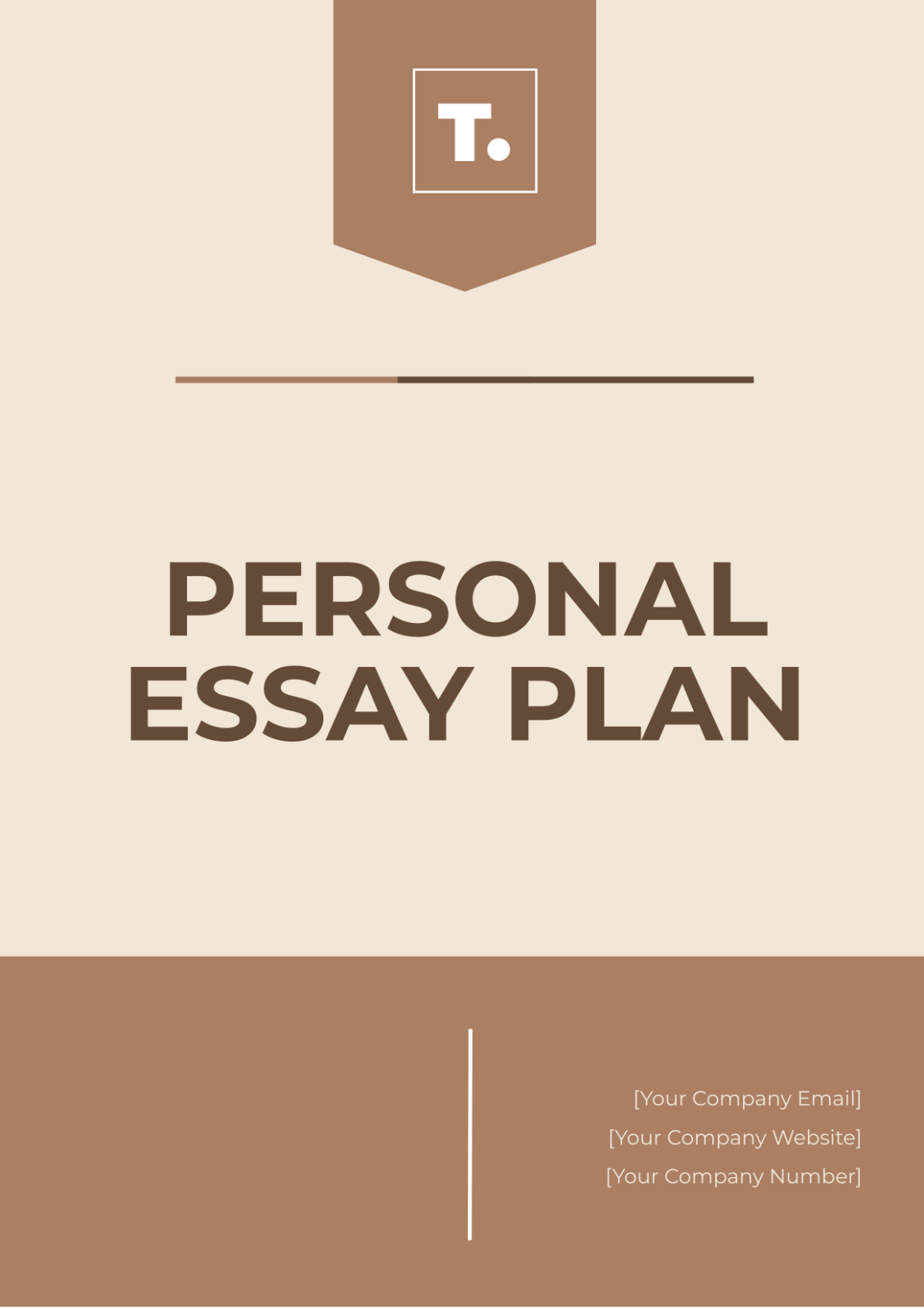
Written by: [YOUR NAME]
I. Introduction
Objective: This template is designed to guide you in writing a personal essay that deeply explores your unique experiences and offers insights into your personal growth or beliefs.
Name: [YOUR NAME]
Purpose: Clearly define the core message or question your essay will explore, focusing on a significant experience or reflection.
Thesis Statement: [THESIS STATEMENT] - This should encapsulate the central idea of your essay, such as a personal belief or a pivotal lesson learned.
II. Story Framework
Context: Provide the necessary background information to understand the personal narrative. This could include the setting, key events, and main characters involved.
Contextual Element
Description
Setting
[WHERE THE STORY TAKES PLACE]
Key Events
[MAJOR EVENTS THAT INITIATE THE STORY]
Main Characters
[PEOPLE INVOLVED IN THE STORY]
Inciting Incident: Detail the specific event or moment that initiated the main narrative of your essay. This is often a challenge or revelation that sets the story in motion.
Incident Description: [DESCRIPTION OF THE INCITING INCIDENT]
III. Development of Themes
A. Exploration of Theme 1
Detail: Explain how this theme is developed through particular experiences or reflections within your story.
Significance: Discuss the importance of this theme in the context of your personal development.
Theme Examples: [EXAMPLES ILLUSTRATING THEME 1]
B. Exploration of Theme 2
Detail: Use examples and anecdotes to illustrate how this secondary theme complements or contrasts with the primary theme.
Significance: Reflect on the insights or lessons this theme contributes to the overall narrative.
Theme Examples: [EXAMPLES ILLUSTRATING THEME 2]
IV. Key Moments and Reflections
Turning Points: Identify and describe key moments in the narrative that significantly influenced the outcome or your personal growth.
Turning Point
Impact on Story
Personal Reflection
[EVENT]
[EFFECT ON NARRATIVE]
[HOW IT CHANGED YOUR PERSPECTIVE]
Personal Reflections: Integrate reflections that explain how these moments affected your views or decisions.
Reflection Insights: [DEEPER INSIGHTS FROM PERSONAL REFLECTIONS]
V. Conclusion
Resolution: Conclude the narrative by summarizing how the story resolves, directly tying back to your thesis statement and the main themes discussed.
Reflective Insight: Provide a reflective insight that encapsulates what you have learned or how you have changed as a result of your experiences.
Closing Thought: Leave the reader with a poignant thought or question that reinforces the essay’s message or encourages further contemplation.
Conclusion Statement: [CONCLUDING THOUGHT OR QUESTION]
VI. Additional Elements
Quotes and Dialogues: Include direct quotes or dialogues when applicable to add emotional depth and authenticity to your narrative.
Dialogue/Quote
Context
[QUOTE/DIALOGUE]
[SCENARIO OR SPEAKER]
Descriptive Details: Use vivid descriptions to bring scenes to life, appealing to the reader’s senses and emotions.
Descriptive Examples: [SPECIFIC DESCRIPTIVE ELEMENTS TO INCLUDE]
VII. Review and Revision
Peer Review: Arrange for peers or mentors to review your essay to provide feedback on its emotional impact and clarity.
Revisions: Detail your strategy for incorporating feedback and refining your essay, focusing on narrative flow and thematic coherence.
Revision Steps: [SPECIFIC STEPS FOR INCORPORATING FEEDBACK]
- 100% Customizable, free editor
- Access 1 Million+ Templates, photo’s & graphics
- Download or share as a template
- Click and replace photos, graphics, text, backgrounds
- Resize, crop, AI write & more
- Access advanced editor
Introducing the Personal Essay Plan Template from Template.net - your go-to resource for academic excellence. Crafted to perfection, this editable and customizable template streamlines your essay preparation process effortlessly. Seamlessly edit in our Ai Editor Tool to tailor your essay structure to perfection. Elevate your writing game today
You may also like
- Finance Plan
- Construction Plan
- Sales Plan
- Development Plan
- Career Plan
- Budget Plan
- HR Plan
- Education Plan
- Transition Plan
- Work Plan
- Training Plan
- Communication Plan
- Operation Plan
- Health And Safety Plan
- Strategy Plan
- Professional Development Plan
- Advertising Plan
- Risk Management Plan
- Restaurant Plan
- School Plan
- Nursing Home Patient Care Plan
- Nursing Care Plan
- Plan Event
- Startup Plan
- Social Media Plan
- Staffing Plan
- Annual Plan
- Content Plan
- Payment Plan
- Implementation Plan
- Hotel Plan
- Workout Plan
- Accounting Plan
- Campaign Plan
- Essay Plan
- 30 60 90 Day Plan
- Research Plan
- Recruitment Plan
- 90 Day Plan
- Quarterly Plan
- Emergency Plan
- 5 Year Plan
- Gym Plan
- Personal Plan
- IT and Software Plan
- Treatment Plan
- Real Estate Plan
- Law Firm Plan
- Healthcare Plan
- Improvement Plan
- Media Plan
- 5 Year Business Plan
- Learning Plan
- Marketing Campaign Plan
- Travel Agency Plan
- Cleaning Services Plan
- Interior Design Plan
- Performance Plan
- PR Plan
- Birth Plan
- Life Plan
- SEO Plan
- Disaster Recovery Plan
- Continuity Plan
- Launch Plan
- Legal Plan
- Behavior Plan
- Performance Improvement Plan
- Salon Plan
- Security Plan
- Security Management Plan
- Employee Development Plan
- Quality Plan
- Service Improvement Plan
- Growth Plan
- Incident Response Plan
- Basketball Plan
- Emergency Action Plan
- Product Launch Plan
- Spa Plan
- Employee Training Plan
- Data Analysis Plan
- Employee Action Plan
- Territory Plan
- Audit Plan
- Classroom Plan
- Activity Plan
- Parenting Plan
- Care Plan
- Project Execution Plan
- Exercise Plan
- Internship Plan
- Software Development Plan
- Continuous Improvement Plan
- Leave Plan
- 90 Day Sales Plan
- Advertising Agency Plan
- Employee Transition Plan
- Smart Action Plan
- Workplace Safety Plan
- Behavior Change Plan
- Contingency Plan
- Continuity of Operations Plan
- Health Plan
- Quality Control Plan
- Self Plan
- Sports Development Plan
- Change Management Plan
- Ecommerce Plan
- Personal Financial Plan
- Process Improvement Plan
- 30-60-90 Day Sales Plan
- Crisis Management Plan
- Engagement Plan
- Execution Plan
- Pandemic Plan
- Quality Assurance Plan
- Service Continuity Plan
- Agile Project Plan
- Fundraising Plan
- Job Transition Plan
- Asset Maintenance Plan
- Maintenance Plan
- Software Test Plan
- Staff Training and Development Plan
- 3 Year Plan
- Brand Activation Plan
- Release Plan
- Resource Plan
- Risk Mitigation Plan
- Teacher Plan
- 30 60 90 Day Plan for New Manager
- Food Safety Plan
- Food Truck Plan
- Hiring Plan
- Quality Management Plan
- Wellness Plan
- Behavior Intervention Plan
- Bonus Plan
- Investment Plan
- Maternity Leave Plan
- Pandemic Response Plan
- Succession Planning
- Coaching Plan
- Configuration Management Plan
- Remote Work Plan
- Self Care Plan
- Teaching Plan
- 100-Day Plan
- HACCP Plan
- Student Plan
- Sustainability Plan
- 30 60 90 Day Plan for Interview
- Access Plan
- Site Specific Safety Plan
